Open This Publication
Abstract in English:
Abstract
Purpose
The purpose of this paper is to investigate the topic of parents who work on a flexible basis and use coworking facilities to find a work–life balance and overcome work–family conflicts.
Design/methodology/approach
The author uses a qualitative approach to explore the research questions. The first part of the empirical research undertakes an ethnographical approach in carrying out the unobstructed participant observation within five European coworking spaces targeted at improving comprehension of the spaces’ mediation mechanisms and development of supportive interactions. The second part traverses into conducting unstructured interviews with parents who work on a flexible basis and use a coworking space as their daily workplace.
Findings
This research paper reveals that flexible workers who found themselves juggling work tasks and family obligations tend to seek better conditions that assist them in tackling conflictual situations and, in addition, enhance their social lives to create further career opportunities. Coworking spaces are thus perceived as optimal workplaces by working parents in that they can find stability and scale their social networks within. Moreover, the continually evolving user interactions resulting from effective mediation mechanisms let these individuals find emotional support, increase productivity and exchange knowledge.
Originality/value
While the coworking industry is rapidly evolving and the academia is keener on investigating the field, the subcategory of work–life and family care within these collaborative environments is virtually unresearched. This paper provides valuable insight into the topic and serves as a knowledge base for the future exploration of this field.
Open Access? No
Journal Equality, Diversity and Inclusion: An International Journal
Publication Year 2019
Volume ahead-of-print
Publisher Emerald
DOI 10.1108/EDI-01-2019-0038
